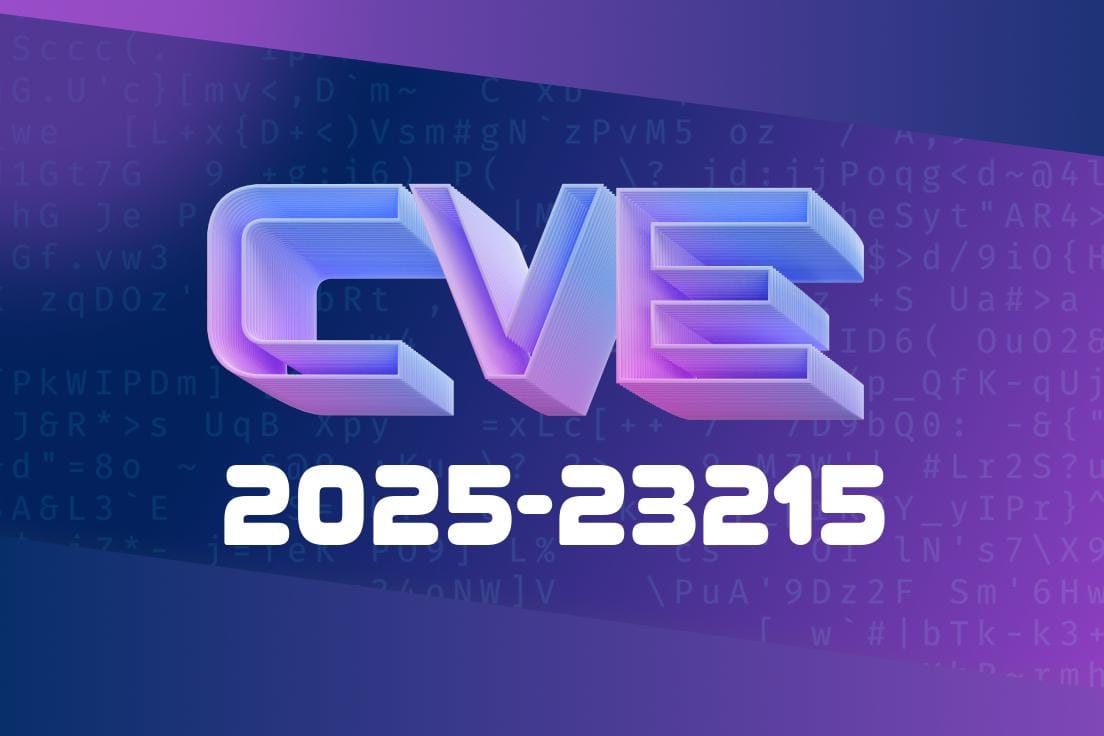The software security world was rocked by the disclosure of CVE-2025-23215, a major vulnerability involving the widely used static code analysis tool PMD. In this post, we'll break down what happened, show you exactly what was compromised (including code snippets), detail the potential risks, and explain what PMD's maintainers are doing to protect developers moving forward.
What is PMD?
PMD is an extensible static code analyzer supporting multiple programming languages. It helps developers find bugs, unused code, and security risks before they make it into production. PMD is popular in open-source and enterprise projects worldwide.
Here's what happened
The passphrase (password) used to protect PMD's release signing keys was accidentally included in a jar file published to Maven Central, the main distribution hub for Java libraries.
The actual private key itself does not appear to be leaked.
- However, because the passphrase is exposed, if someone ever gains access to the private key file, they could use the published passphrase to unlock and use the key.
Where Was the Passphrase Leaked?
The vulnerable jar was accidentally published in an artifact under the group id net.sourceforge.pmd on Maven Central. Here's a simplified code snippet demonstrating how such config data could get bundled by mistake:
<!-- Imagine a pmd-config.xml accidentally checked into source control -->
<signing>
<keyPath>/home/builduser/.gnupg/private-keys/keyfile.asc</keyPath>
<passphrase>SuperSecretPass123!</passphrase>
</signing>
Or in Java code
public class ReleaseSigner {
public static void main(String[] args) {
String passphrase = "SuperSecretPass123!"; // Exposed in jar!
// Key usage logic here
}
}
If such a file or code block is bundled into a distributable jar, anyone can extract it with a standard unzip tool.
Is the Private Key Leaked?
Currently, there is no public evidence that the private key itself was stolen or exposed.
However, *security best practice* says that if the passphrase for a private key is leaked, the key must be considered compromised — because all an attacker would need is the private file (which could have been exposed or will be exposed in the future).
Are PMD Releases Compromised?
According to the official PMD announcement:
Obtain the Private Key:
If an admin's workstation or cloud account is compromised and the key is present, combine it with the leaked passphrase.
Fake Sign a Malicious PMD Build:
The attacker could create a malicious PMD jar, sign it with the stolen key+passphrase, and distribute it outside Maven Central.
Revoked the Compromised Keys:
The maintainers immediately revoked the compromised key pairs, ensuring no one (not even themselves) can use these keys to sign future releases.
No Past Releases Tampered With:
All existing signatures for past jars remain valid, but only as an audit trail. If maximum caution is needed, consider verifying with additional cryptographic checks.
Watch for Notices:
If you consume PMD from other sources (GitHub releases, mirrors, Docker images), verify the SHA256 and the signature’s key fingerprint against officially announced fingerprints (see here).
Beware of Supply Chain Attacks:
If you see a PMD jar not published directly to Maven Central or signed with unknown keys, treat it with suspicion.
References & Further Reading
- Official CVE-2025-23215 listing
- PMD GitHub Security Advisory
- PMD Project Website
- Artifact signing best practices (Sonatype/Maven Central Docs)
Conclusion
While the risk to currently published PMD artifacts on Maven Central is low, CVE-2025-23215 is a serious reminder: never bundle credentials or passphrases in published binaries. PMD maintainers have responded quickly and responsibly. As always, stay vigilant with your open-source supply chain and follow updates from trusted sources.
Exclusive Note: PMD’s transparency and swift response should serve as a model for similar projects. This incident underscores the importance of periodic secret scans and rotating cryptographic materials, even when no public signs of abuse exist.
*If you have further questions about this vulnerability or want hands-on help analyzing your own artifact security, leave a comment below or reach out via the official PMD channels.*
Timeline
Published on: 01/31/2025 15:25:53 UTC
Last modified on: 04/04/2025 21:15:44 UTC
